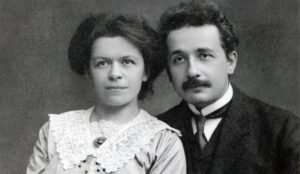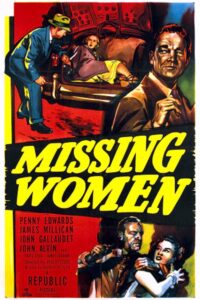Rarely acknowledged as anything then a trophy.
Throughout generations men have historically been written about as the protagonists. Harriet Jacobs in the “Incidents in the Life of a Slave Girl”, brings her story to life. In the Preface, Jacobs’ voice is meek and gentle to readers. It almost seems as if she desires to make herself unknown and unheard.
I have not written my experiences in order to attract attention to myself; on the contrary, it would have been more pleasant to me to have been silent about my own history. Neither do I care to excite sympathy for my own sufferings. But I do earnestly desire to arouse the women of the North to a realizing sense of the condition of two millions of women at the South, still in bondage, suffering what I suffered, and most of them far worse. I want to add my testimony to that of abler pens to convince the people of the Free States what Slavery really is. Only by experience can any one realize how deep, and dark, and foul is that pit of abominations. May the blessing of God rest on this imperfect effort in behalf of my persecuted people! (Harriet Jacobs i)

Sydney Sherow Celestin performs in ‘Harriet Jacobs,’ the regional premiere of a play by Lydia R. Diamond presented by African American Repertory Theater at KD Studio Theater on June 9, 2016 in Dallas. (Ting Shen/The Dallas Morning News)
How many times do women do this? How many times do we make ourselves small? We minimize our actions or reactions because it would be deemed an overreaction. She’s going crazy. Or it must be that time of the month? Or why are women so emotional? Harriet Jacobs understood this well; she was a slave, when she was free, she dedicated her life to her children and work and was left with “no time for leisures”. Jacob escapes slavery and on the off chance she had time she would write her story down. Even in today’s world women specifically of color prioritize others over themselves. How many times in my life did I see my own mother do it with my brother and I. We would have brand new school uniforms every year and she would wear hand me downs. It is as if we are expected not to desire above our social status. Jacobs was expected to conform to her social standing as a former slave and as a black woman. Society expected her to be docile as a black woman to be silent like she did not exist. Jacobs tries to break through the societal norms by publishing her story, but despite this she must assume another identity; Linda Brent so as not be discovered.
Who is our Linda Brent? Who is that inner woman, that most females choose to lock up because they fear the social put downs.
“Behind Every Great Man is A Great Women!”

Einstein with his first wife, Mileva. Universal History Archive/Universal Images Group/Getty Images
According to “The Knowledge”, Einstein married a fellow physics student, Mileva Maric. “At school Mileva was more of an academic superstar than Albert.” When Einstein told his mother he wanted to marry Mileva, she replied: “Like you, she is a book. But you ought to have a wife.”
Yet Mileva was instrumental in his success. She proofread his work and tweaked his calculations. She also did his laundry and raised his children. “When they were apart, he sent her a sketch of his foot so she could knit him a pair of socks.” She didn’t get much back.

International Women’s Day greeting banner. Abstract woman portrait different nationalities on floral linear background. Girl power, struggle for equality, feminism, sisterhood concept. Vector.
We have continued doing this throughout history. Why do women choose time and time again to play the background, instead of coming to the forefront? Don’t women do this today? Don’t we hide our true potential because men in our lives will feel inferior, fathers, brothers, husbands?

Women have been missing in action. We have the power to truly effect change, to change the course of time. If we look towards the Bible, in Genesis we see how through Eve and her persuasion sin is introduced into humanity.
I propose that there is true freedom when women allow their truest selves to radiate through. Please understand this in no way diminishes the opposite sex but in fact encourages women to discover and set free their inner selves.



Nice post! I
Nice post! It is so true that this mindset of “male superiority” is still alive in today’s society. Women have been oppressed throughout history and its repercussions are still alive. It takes a lot of courage to break generational curses, but it’s not impossible!
I also noticed it too that throughout history that women never get credits for what they have done. They have to make themselves small over and over again just like Harriet Jacob.
I agree when you says, “There is true freedom when women allow their truest selves to radiate through. Please understand this in no way diminishes the opposite sex but in fact encourages women to discover and set free their inner selves”. Let me take from yours words and add that Women’s freedom is a pathway to empowerment. When women have the freedom to make decisions about their education, careers, and personal lives, they gain confidence, independence, and a sense of self-worth. Empowered women are more likely to challenge social norms, break through glass ceilings, and become agents of change in their communities.
While Harriet Jacob’s narrative lies in fact, your blog post made me think of how often women are sidelined in media as well. Particularly black women, who are usually pushed into different archetypes, as a form of making themselves small, like you’ve described.
I greatly appreciate you sharing these captivating facts about Einstein and the profound influence his wife had on his work and success. It’s remarkable how her contributions are often overlooked or unknown when teaching about him.
Furthermore, your empowering blog post resonated deeply with me. I always have a zinging quote running in my head that “empowered women empower women” and this is what I see throughout your writing too, so thank you 🙂
It’s essential for us women to break free from the confines of societal expectations (shaped and restrained by men for generations) and embrace our own strengths and abilities. By supporting and uplifting one another, we can collectively foster an environment where women can thrive/be celebrated.
Thank you so much for your post. I am glad my post resonated with you. It will be interesting to see how women begin to empower other women and giving one another credit for it.
I love how you speak of women and their diminished “role” in media in past representations and how that is flawed and wrong and must change. And having seen, myself, a fair share of older movies I remember little that involved a damsel doing … much beyond needing to be saved, and that’s boring, really.
That has been changing as of late, to varying degrees of success, a notable thing at least me remembering is Elizabeth Swann, from Pirates of the Carribean, who quickly adapts to becoming a pirate and, graduating from the role of a damsel in distress, proves herself as an independent person. I’ll leave it there to avoid spoilers. Funnily enough my first exposure to her was in the World’s End DS game, where she is a playable character. Now that was a whiiile ago.
Yeah, sometimes it gets super boring seeing the same old. It gets so encouraging and exciting seeing women adapt to their situation in film or in books. If you think about it, we see women adapt every day. Prime examples are mothers. How many times do they have to adapt when life doesn’t go their way, ie, left to raise children alone.
Thenature of Harriet Jacob’s story made me think about how often women are left out of the media. This is particularly obvious for people of color, who are frequently bound to explicit generalizations, bringing about their diminishment and concealment, as smoothly communicated in your blog entry. The prevalence of such treatment emphasizes the significance of increasing black women’s representation and empowerment in the media industry.
I find that still today there is so often a diminishing of women’s identity in mainstream media. There are so many occasions when you watch the news or read the news about a celebrity and she is referred to is “Wife of…” or “Sister of…” other celebrities, as opposed to being recognized as their own identity. In this way, agency is removed from women still, as they are relegated to just being in the shadow of other men.
It almost seems and feels many times as if women are simply pieces of jewelry to decorate a man’s arms.
Great post! The pressure on women to make themselves small and minimize their actions or reactions in order to avoid being labeled as overreacting, crazy, or emotional. This expectation can lead women to silence their own voices and experiences, diminishing their significance and impact. Harriet Jacobs’s own experiences as a slave and later as a free woman reflect the ways in which societal norms constrained her. She dedicated herself to her children and work, leaving little time for personal pursuits or leisure. This mirrors the experiences of many women, especially women of color, who prioritize others over themselves due to societal expectations and obligations.